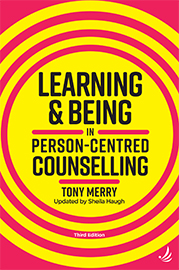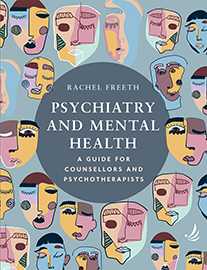Online Book Launch for Poetry + Therapy: Why Words Help – Dr Stephanie Aspin Phd in conversation with Dr Judy Moore
12 Jun
Online via Onlinevents
PCCS Books is an independent mental health publisher.
We want a better deal for everyone who seeks help for emotional distress – better understanding from practitioners and society, better responses and more choices from services and better outcomes from treatments. Our aim is that our publishing reflects these goals.
What is poetry and what does poetry do? Why is poetry a force for psychological change?
Words and language - and by implication, creative writing - offer us a way of expressing ourselves and getting our feelings out into the world in ways that feel psychologically helpful. They offer us a route to catharsis and the opportunity to connect with other people. When we approach language poetically, language can do other things that bring about change at a psychological level. Poems allow us to hear and feel the multiplicity of meanings because this is how poetry works. Poetry actively encourages us to listen to language in more complex and multi-faceted ways – ways that make us take account of the sounds and rhythms of words, and their associations through its use of metaphor and other figurative tropes. It is because poetry asks us to move into a psychological space where meaning must be discovered and made that it is such fertile ground for psychological repair and healing.
Stephanie Aspin is an integrative therapist by training and in her clinical practice. Additionally, she has a background in literary criticism and theory. In Poetry and Therapy, she takes us from the practice of writing therapeutically and passes through a range of psychological and psychoanalytic ideas. She draws on philosophical ideas, including those about poetry, literature, and art more widely because they are important to understanding why words help. Ultimately, the reader gains a fuller understanding of the place of poetry within therapeutic practice, which includes not only the what but also the why.
Throughout, Aspin includes examples of work produced in her own clinical practice. She also includes references to published poems, many by poets such as T.S. Eliot, Emily Dickinson and Sylvia Plath. At the end of each chapter are exercises for the reader to try out and additional exercises are provided in the Appendix.
‘Poetry and Therapy is a rich, intelligent, and deeply humane offering that weaves together the power of poetry, therapeutic insight, and philosophical depth.’
Jo Watson, psychotherapist, supervisor, trainer, author and activist
‘Therapists concerned with the healing potential of language as an art form will find inspiration here.’
Dr Victoria Field, writer and poetry therapist
12 Jun
Online via Onlinevents
We have a growing list of ebooks. To see a full list of these digital books and how to download the ebooks click here











